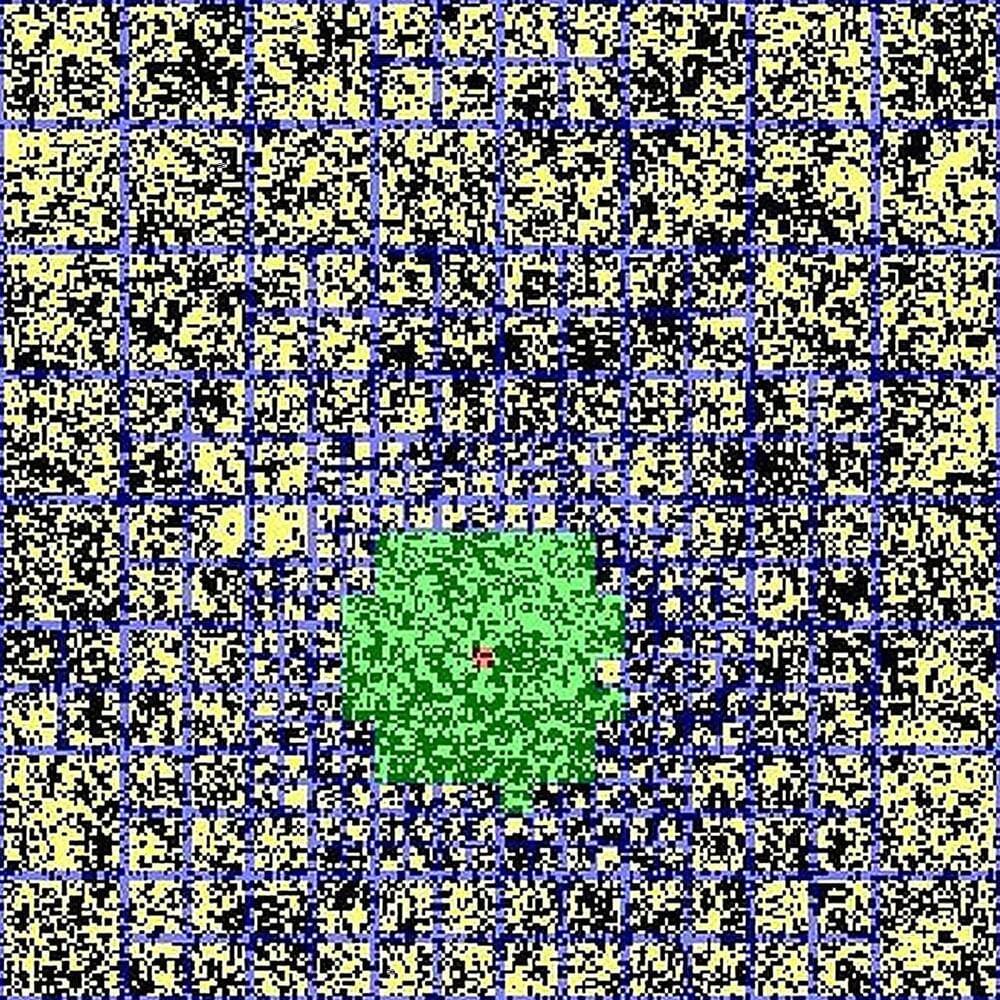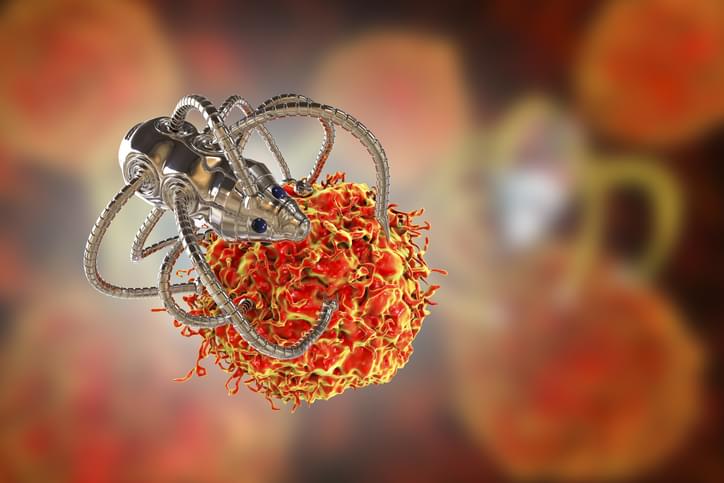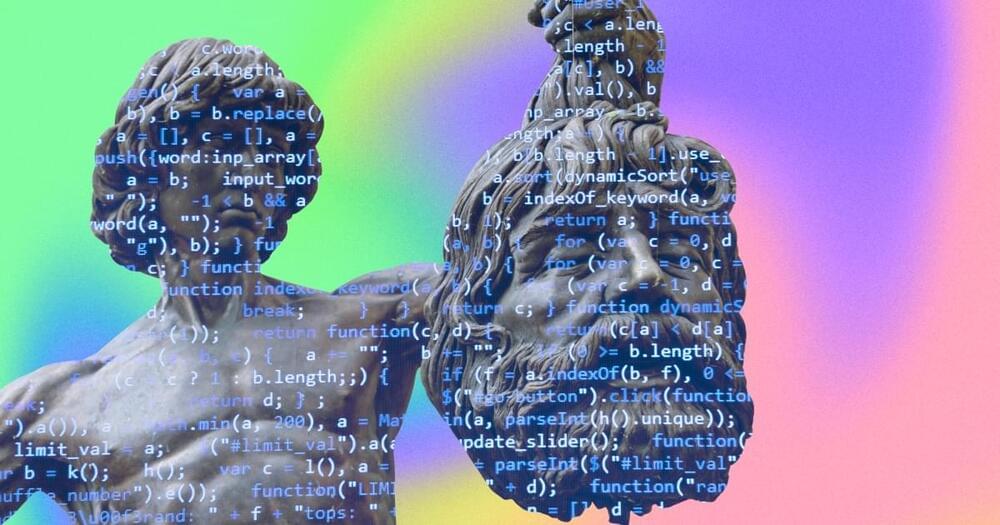What is Elon Musk planning with Twitter/X?
It seems he has an inspiration.
Is Twitter X going to become a super app like WeChat?
What is Elon Musk planning with Twitter/X?
It seems he has an inspiration.
Is Twitter X going to become a super app like WeChat?

Researchers at Leipzig University have developed a highly efficient method to investigate systems with long-range interactions that were previously puzzling to experts. These systems can be gases or even solid materials such as magnets whose atoms interact not only with their neighbors but also far beyond.
Professor Wolfhard Janke and his team of researchers use Monte Carlo computer simulations for this purpose. This stochastic process, named after the Monte Carlo casino, generates random system states from which the desired properties of the system can be determined. In this way, Monte Carlo simulations provide deep insights into the physics of phase transitions.
The researchers have developed a new algorithm that can perform these simulations in a matter of days, which would have taken centuries using conventional methods. They have published their new findings in the journal Physical Review X.

For more information on mental health or #YaleMedicine, visit: https://www.yalemedicine.org/conditions/topics/mental-health.
For many people, depression turns out to be one of the most disabling illnesses that we have in society. Despite the treatments that we have available, many people are not responding that well. It’s a disorder that can be very disabling in society. It’s also a disorder that has medical consequences. By understand the neurobiology of depression we hope to be able more to find the right treatment for the patient suffering from this disease. The current standard of care for the treatment of depression is based on what we call the monoamine deficiency hypothesis. Essentially, presuming that one of three neurotransmitters in the brain is deficient or underactive. But the reality is, there are more than 100 neurotransmitters in the brain. And billions of connections between neurons. So we know that that’s a limited hypothesis. Neurotransmitters can be thought of as the chemical messengers within the brain, it’s what helps one cell in the brain communicate with another, to pass that message along from one brain region to another. For decades, we thought that the primary pathology, the primary cause of depression was some abnormality in these neurotransmitters, specifically serotonin or norepinephrine. However, norepinephrine and serotonin did not seem to be able to account for this cause, or to cause the symptoms of depression in people who had major depression. Instead, the chemical messengers between the nerve cells in the higher centers of the brain, which include glutamate and GABA, were possibilities as alternative causes for the symptoms of depression. When you’re exposed to severe and chronic stress like people experience when they have depression, you lose some of the connections between the nerve cells. The communication in these circuits becomes inefficient and noisy, we think that the loss of these synaptic connections contributes to the biology of depression. There are clear differences between a healthy brain and a depressed brain. And the exciting thing is, when you treat that depression effectively, the brain goes back to looking like a healthy brain, both at the cellular level and at a global scale. It’s critical to understand the neurobiology of depression and how the brain plays a role in that for two main reasons. One, it helps us understand how the disease develops and progresses, and we can start to target treatments based on that. We are in a new era of psychiatry. This is a paradigm shift, away from a model of monoaminergic deficiency to a fuller understanding of the brain as a complex neurochemical organ. All of the research is driven by the imperative to alleviate human suffering. Depression is one of the most substantial contributors to human suffering. The opportunity to make even a tiny dent in that is an incredible opportunity.

A tiny robot which can travel deep into the lungs to detect and treat the first signs of cancer has been developed by researchers at the University of Leeds. The ultra-soft tentacle, which measures just two millimeters in diameter, and is controlled by magnets, can reach some of the smallest bronchial tubes and could transform the treatment of lung cancer. The researchers tested the magnetic tentacle robot on the lungs of a cadaver and found that it can travel 37 percent deeper than the standard equipment and leads to less tissue damage. It paves the way for a more accurate, tailored, and far less invasive approach to treatment.
The work is published in Nature Engineering Communications in the paper, “Magnetic personalized tentacles for targeted photothermal cancer therapy in peripheral lungs.”
“This new approach has the advantage of being specific to the anatomy, softer than the anatomy and fully-shape controllable via magnetics,” notes Pietro Valdastri, PhD, director of the Science and Technologies Of Robotics in Medicine (STORM) Lab at the University of Leeds. “These three main features have the potential to revolutionize navigation inside the body.”

Can the fountain of youth come in the form a pill?
Imagine this: a cocktail of specialized chemicals that rejuvenates your whole body, from your eyes and brain to your kidneys and muscles—bringing you back to a more youthful version of yourself.
Sound like science fiction?
Giant waves have been found swirling in the plasma at the boundary of Jupiter’s magnetosphere, scientists have found.
Data from Juno suggests the Jupiter probe regularly dips through these waves, invisible to the naked eye, as it orbits the giant planet. The discovery helps astronomers understand how mass and energy is transferred from the solar wind to the Jovian planetary environment.
Actually, such waves are not unknown in the Solar System. They’re known as Kelvin-Helmhotz waves, and they occur when there’s a difference in velocity at the boundary between two fluids. They can commonly be seen where wind blows across the surface of lakes and oceans, between currents in water, or even among bands of clouds in a planet’s atmosphere.


The world’s largest community of 3D-printed homes is being built in Texas — and the neighborhood just unveiled its first completed house.
With walls “printed” using a concrete-based material, the single-story structure is the first of 100 such homes set to welcome residents starting September.
The community is part of a wider development in Georgetown, Texas called Wolf Ranch. It’s located about 30 miles north of Austin, the state capital, and is a collaboration between Texas construction firm ICON, homebuilding company Lennar and Danish architecture practice Bjarke Ingels Group (BIG).